Cognita Schools is a rare thing: a turnaround private school chain, a phenomenon more commonly discussed in relation to state schools than the independent sector.
Back in 2015 it featured in Schools Week for aggressively bankrupting parents in order to claw back fees it was owed; having taken over several small private schools in previous years, it seemed to be spiralling out of control.
Enter Chris Jansen, a turnaround business specialist with a rollcall of brands to make Watchdog weep. As director at British Airways and then British Gas he oversaw the gradual turnaround in reputation of both. Next, he oversaw the £1.4 billion sale of the AA as chief executive – yes, the roadside recovery service.
Now, in the two years since he took over as chief executive at Cognita, the company has changed dramatically. Its strapline – it’s the “low-cost” private school chain – given to it by the controversial former chief inspector Chris Woodhead, is now gone for good.
A row of clocks sit above the entrance to its minimalist central London office, nestled just behind the glitzy shops of Oxford Circus, showing the different timezones occupied by the schools it owns across the world.

Jansen starts our chat with results. International Baccalaureate scores were strong in Asia and improving in Latin America this year. In Europe, he is now tracking progress of every child and value-added scores in England are moving upwards (he has introduced value-added league tables to motivate and inform the groups’ headteachers). And in Hong Kong, the group has just opened a new school.
“We opened with 350 children, which is great. We have 33 teachers, and 11 of those came from within the Cognita group, including the head and superintendent,” he says, very keen to stress the international opportunities for staff who join the company.
If it sounds clinical, it’s tempered by Jansen’s boyish enthusiasm for high performance. With an uncanny physical similarity to Dragon’s Den presenter Evan Davis, he also smiles, motions and speaks enough to be his doppleganger.
“Leadership is fundamental to all organisations but I have never been involved in a situation where it’s more important than a school,” he says.
Leadership is fundamental to all organisations but I have never been involved in a situation where it’s more important than a school
“School leaders are absolutely critical to everything that is happening. Leadership comes with a clear vision of what you want to achieve, of having the right team, of everyone being clear on what we’re trying to achieve, what the expectations are, what success looks like.
“With clear targets we then think about how we motivate people, how we manage people, how we inspire them, that’s how we create a culture of success, of honesty, of transparency.”
This is not pie-in-the-sky strategy, however. At British Gas, Jansen focused on the length of time customers waited to get phone calls answered (10 minutes) and on staff turnover at call centres (50 per cent). Those were simple metrics that told a bigger story about the organisation. Changing them meant turning around a culture which eventually turned around performance.
Jansen is aware that schools may not be so simple: “We can’t be the McDonald’s of education. Education is complex, it’s long-term, it needs to be thoughtful. This isn’t about creating an inflexible model.”
But there are certain factors driving performance, such as ICT, staff recruitment, staff development, all of which can be improved to get better outcomes for pupils. And indicators such as employee, pupil and parent satisfaction are helpful in working out whether the needle is starting to move.
“Sometimes in education people separate into ‘teaching staff’ and ‘non-teaching staff’,” he explains. “The most fundamental thing is the quality of the teaching that happens in the classroom, sure. But all of the people around that, not just the teacher, are important too. So the ICT has got to work, the facilities managed, the right HR, admission, safeguarding systems.”
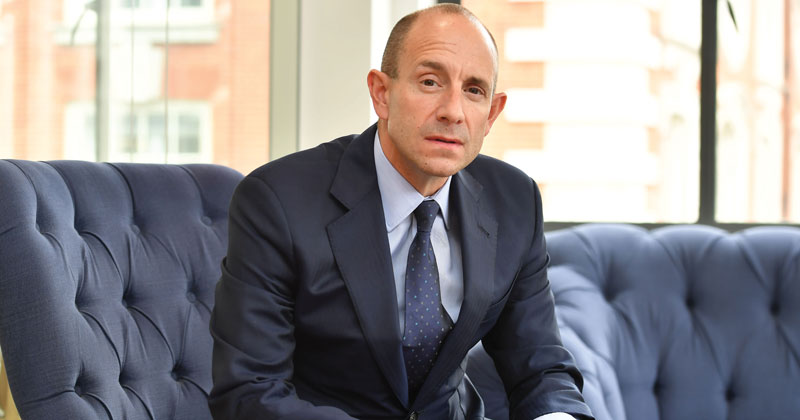
Does he make this emphasis because he’s not from an education background?
“I’m just a facilitator. I’m… look, people say to me ‘you don’t know anything about education’. And I say, ‘you’re right’. And, actually, when I was at British Gas, we used to fix seven million boilers a year and I still can’t fix even one,” he points out.
“I can’t run a maths lesson, but what I can do is try and contribute to an environment where people can contribute freely and give their views and use their experience to get us to a better place.”
But how is he starting to pull together a cohesive, well-supported school chain given the constraints of timezones and geography? After all, the academies minister Lord Nash believes that schools more than 30 minutes away from each other are too difficult to manage. For Cognita, there’s around 30 hours of travel involved in getting from the school in Chile to the one in Hong Kong.
Jansen explains that the company works regionally in the first instance – with directors for each region. Core principles are the same everywhere, however, and those are communicated via an intranet system and a series of key metrics that the group is building.
We’re not the most expensive, we’re not the cheapest. We’re middle of the pack
And each year, in November, the leaders of the schools also come together for a conference.
“We talked about education for the whole week. They didn’t know what to expect the first time we did it. I think they were expecting us to talk about admissions or how to run their school financially. We didn’t speak about that at all. Every talk was about education and leadership,” he says.
“What was fascinating was that, by the end, headteachers were saying ‘I would really like to know how to manage the school commercially’ and I said ‘don’t worry about that – focus on the quality of improving education’.”
Jansen himself was educated at St George’s College Weybridge, an independent day school in Surrey. It was a boys’ school when he attended but it admitted girls from the late 1990s. He is now a governor there, a role his father – who died suddenly aged 58 – had also once occupied.
At school he was easily bored, somewhat mischievous and focused more on sport than academics, but a talking to by his tutor, Dr Peter McLoughlin, during his A-levels, changed everything.
“I remember exactly where it was,” he says. “I was sat on a radiator outside the staff room, it was a grey day behind me, and he said ‘Chris, you’ve got a choice to make. Either you knuckle down and do some work and get some good grades, or you’ll be lost to the world, and goodness knows what happens then.’
“He was a tough man, but he cared. And I think he got through to me by genuinely caring. He fundamentally changed my life. That’s why I’m very keen that we care for our teachers so that we look after them, and in turn,” he looks almost surprised for a moment, “then they give their best care to the children.”
There is no getting away from the fact that such care comes at a cost. Cognita schools are not hitting the £40,000-a-year highs of the top public schools, but fees come in at between £3,500 and £10,000 a year in England. Does he feel that reflects the low-cost dreams of Woodhouse’s original intent?
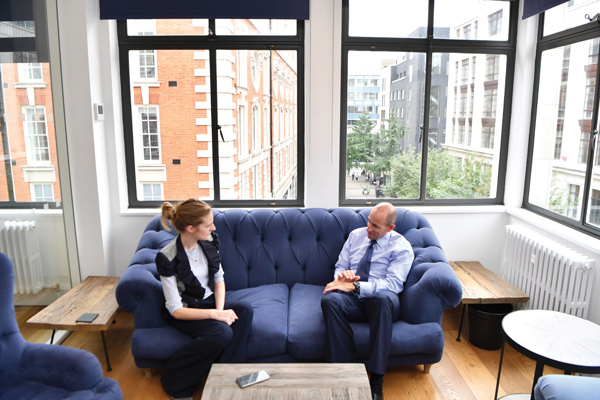
“It comes back to value,” he says carefully. “We’re not the most expensive, we’re not the cheapest. We’re middle of the pack. But when a parent pays an enormous amount of money, and it’s a lot they’re paying, then you have to respect that and be certain they are getting good value. For me, it’s not about ten versus twenty or fifty thousand pounds, it’s whether parents are satisfied with the way their child is developing.
“There are many children that perform below expectation, or below their potential, in our education system. And what I’d like to guarantee, and I think we can now, is that the vast majority of children at Cognita will at least perform to their potential or above. And that means doing well academically but developing as people as well.”
In a country like England, however, where academic grades are increasingly constrained and where value-added measures are zero-sum, does he feel improving Cognita will affect state schools which don’t have the same resources available?
“It’s an interesting one,” he says, again guardedly. “When I was at Procter and Gamble, we were trying to sell more boxes of Ariel than Persil because it was a zero-sum game. There are only so many boxes of detergent sold; we wanted to have the greatest share.
In education there are seven per cent of parents who are in a fortunate position
“In education there are seven per cent of parents who are in a fortunate position – and they make a lot of sacrifices to do it – that they can afford independent education. It’s been seven per cent for a long, long time. It’s never going to be eight per cent, it’s never going to be 10 per cent.
“So one of the reasons I wanted Sir Kevan Collins from the Education Endowment Foundation to come work with us on a network we are building, is because I said to him that he can take anything he learns from us and open source it into education.
“Sometimes, in the maintained sector, which is massive and complex, driving change in thousands of schools is difficult. We’ve only got 70 schools globally. We can do things in six months you can’t do elsewhere. And other schools can learn from that.
“So what I’d like us to do is learn how to run better networks of schools and then openly share that. In a sense, I don’t see it as competitive, like the detergent. I want us to be better for our children, but I want everyone to be better.”
At present, for example, Cognita’s school in Vietnam is running a daily TV news bulletin anchored by a rotating fleet of pupils who choose the stories, write the scripts, and produce the show, which is then distributed via screens in the school. It’s a neat way of improving literacy and general knowledge, and he wants to try it in other schools. If it works, people are free to steal the lessons they learn of how to make it successful.
Recently, he wrote to Dr McLoughlin, the tutor who changed his life by that radiator at school.
“If you are a British Gas engineer, you fix a boiler, and the heat instantly returns, and you are a hero. In education, teachers have a massive impact, but the chances are that you never know. So I wrote to him, and he wrote back – I was in tears reading it,” he confesses.
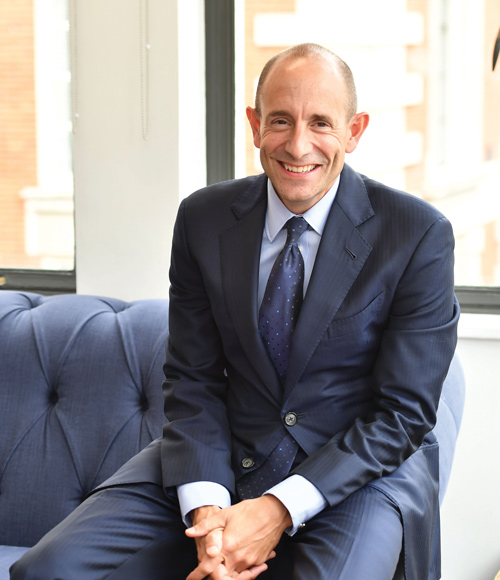
He challenges me to call anyone in the organisation to ask for their feedback: “Seriously, call anyone. I’d love to know what they’d say in fact.”
Despite this, he emphasises that Cognita is still very much “a work in progress”.
“We have a healthy dissatisfaction for where we are, but I know today that the quality of education in our schools is getting better – it’s better than it was last year, and next year it will be even better,” he insists.
“Cognita hasn’t always been the organisation we’d aspire to be. We really haven’t. And we’re not there yet. But, really, we are one step closer.”
It’s a personal thing
What’s your favourite book, and why?
Tour de France Legendary Climbs as this book inspires the cycling I love to do with my wife, family and friends.
If you were invisible for the day, what would you do?
I would go into our classrooms and just listen, learn and think how we could do even better.
Growing up, what job did you think you would do?
A Grand Prix driver.
What do you eat for breakfast?
Plain porridge – my wife Lucie is a nutritionist and has banned honey.
Which animal are you most like, and why?
A dog: very committed and loyal but can be influenced by food.






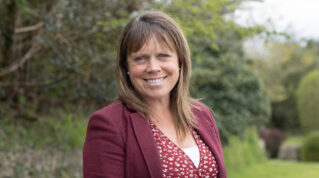

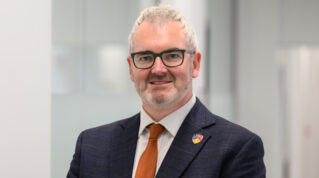



Your thoughts